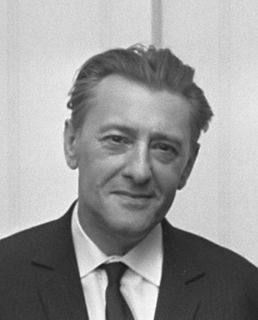
Louis Paul Boon was a Belgian writer of novels, poetry, pornography, columns and art criticism. He was also a painter. He is most known for the novels My Little War (1947), the diptych Chapel Road (1953) / Summer in Termuren (1956), Menuet (1955) and Pieter Daens (1971).

Louis Marie-Anne Couperus was a Dutch novelist and poet. His oeuvre contains a wide variety of genres: lyric poetry, psychological and historical novels, novellas, short stories, fairy tales, feuilletons and sketches. Couperus is considered to be one of the foremost figures in Dutch literature. In 1923, he was awarded the Tollensprijs.
Dutch language literature comprises all writings of literary merit written through the ages in the Dutch language, a language which currently has around 23 million native speakers. Dutch-language literature is the product of the Netherlands, Belgium, Suriname, the Netherlands Antilles and of formerly Dutch-speaking regions, such as French Flanders, South Africa, and Indonesia. The Dutch East Indies, as Indonesia was called under Dutch colonization, spawned a separate subsection in Dutch-language literature. Conversely, Dutch-language literature sometimes was and is produced by people originally from abroad who came to live in Dutch-speaking regions, such as Anne Frank and Kader Abdolah. In its earliest stages, Dutch-language literature is defined as those pieces of literary merit written in one of the Dutch dialects of the Low Countries. Before the 17th century, there was no unified standard language; the dialects that are considered Dutch evolved from Old Frankish. A separate Afrikaans literature started to emerge during the 19th century, and it shares the same literary roots as contemporary Dutch, as Afrikaans evolved from 17th-century Dutch. The term Dutch literature may either indicate in a narrow sense literature from the Netherlands, or alternatively Dutch-language literature.
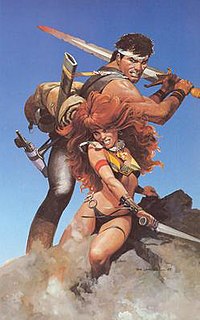
Storm is a soft science fiction/fantasy comic book series originally drawn by Don Lawrence. It tells the adventures of an astronaut who accidentally gets lost in time. The series originated in Dutch, but has since been translated into many other languages.

Willem Johannes Theodorus Kloos was a nineteenth-century Dutch poet and literary critic. He was one of the prominent figures of the Movement of Eighty and became editor in chief of De Nieuwe Gids after the editorial fracture in 1893. He was nominated for the Nobel Prize in Literature five times.

The Tachtigers ("Eightiers"), otherwise known as the Movement of Eighty, were a radical and influential group of Dutch writers who developed a new approach in 19th-century Dutch literature. They interacted and worked together in Amsterdam from the 1880s. Many of them are still widely read today.
Flemish literature is literature from Flanders, historically a region comprising parts of present-day Belgium, France and the Netherlands. Until the early 19th century, this literature was regarded as an integral part of Dutch literature. After Belgium became independent from the Netherlands in 1830, the term Flemish literature acquired a narrower meaning and refers to the Dutch-language literature produced in Belgium. It remains a part of Dutch-language literature.
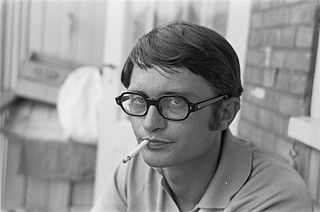
Remco Campert was a Dutch author, poet and columnist.
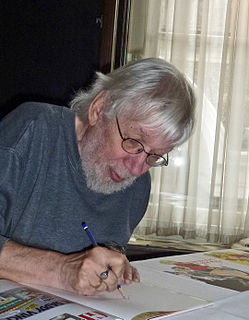
Martinus Spyridon Johannes Lodewijk is a Dutch comics writer and cartoonist, and advertising adviser.
Dutch comics are comics made in the Netherlands. In Dutch the most common designation for the whole art form is "strip", whereas the word "comic" is used for the (usually) soft cover American style comic book format and its derivatives, typically containing translated US superhero material. This use in colloquial Dutch of the adopted English word for that format can cause confusion in English language texts.

De Nieuwe Gids was a Dutch illustrated literary periodical which was published from 1885 to 1943. It played an important role in promoting the literary movement of the 1880s. Its contents covered a wide range of topics, extending to developments in science.
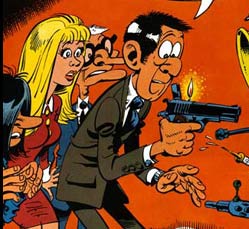
Agent 327 is a Dutch action/comedy comic series by cartoonist Martin Lodewijk. It was a regular feature from 1966 until 1983, and again from 2000 to the present. The eponymous Agent 327 is a James Bond/Maxwell Smart-like Dutch secret agent who fights for "Righteousness and World Peace"; his looks are based on the character of Peter Gunn. Often partnered with the junoesque Olga Lawina, his adventures take him around Europe and the rest of the world as he battles numerous villains, both fictional and parodies of real people.

Michaël Henricus Gertrudis (Michiel) van Kempen is a Dutch writer, art historian and literary critic. He has written novels, short stories, essays, travel literature and scenarios. He was the compiler of a huge range of anthologies of Dutch-Caribbean literature and wrote an extensive history of the literature of Suriname, in two volumes.

Willem Witsen was a Dutch painter and photographer associated with the Amsterdam Impressionism movement.

Lodewijk de Vadder was a Flemish Baroque landscape painter, draughtsman, engraver and tapestry designer. His landscapes represent a move away from the Mannerist tradition of landscapes painting in Flemish art towards a more naturalistic approach exemplified by looser brushwork and an emphasis on atmospheric effects. He was the first Flemish landscape painter who painted dune landscapes as the primary feature of his landscapes. While his loose brush handling shows the influence of Rubens and Adriaen Brouwer, his restrained palette shows his awareness of developments in the Dutch Republic.

Dick Matena is a Dutch comics writer and cartoonist. He has also published under the pseudonyms A. den Dooier, John Kelly and Dick Richards. He has made several kinds of comics, from humor comics to erotic comics, but is best known for his comic book adaptations of famous literary novels.
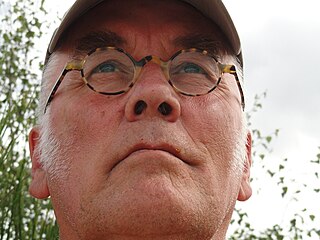
Martin Gert Koster is a Dutch writer in the Drèents variety of Dutch Low Saxon. Known for his parodies and sarcasm, he is one of the founders of Drèents literary magazine Roet, which sought to broaden the literary appeal of Drèents writing by teasing it away from a focus on nostalgia and trodden paths. In 2021 Koster received a knighthood in the Order of Orange-Nassau for his efforts on behalf of the Drèents language.
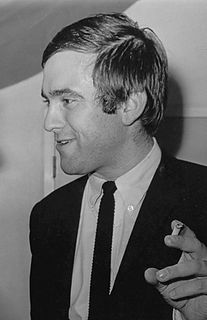
Gerard Stigter, known by the pseudonym K. Schippers, was a Dutch poet, prose writer and art critic. Credited with having introduced the readymade as a poetic form, the whole of his work is dedicated to looking at everyday objects and events in a new way.
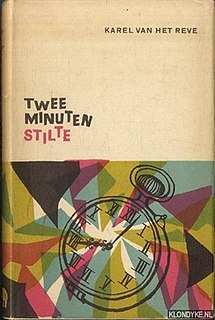
Twee minuten stilte is a novel by Dutch academic, writer, and essayist Karel van het Reve. First published in 1959, the detective novel follows the investigation into a murder at a Dutch research institute. A barely disguised roman à clef, many of its characters are based on colleagues and friends of the author, and the novel criticizes an academic system full of meaningless formalities and historiography as practiced by Soviet scholars and their Western sympathizers. The novel was reprinted in 1960 and 1962, and again in 2001 together with Van het Reve's other novel, Nacht op de kale berg.
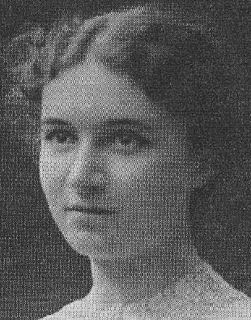
Annie Salomons (1885–1980) was a Dutch writer, poet and translator.

















